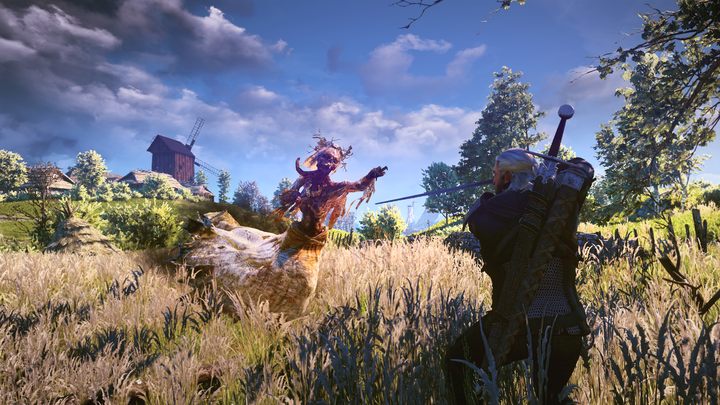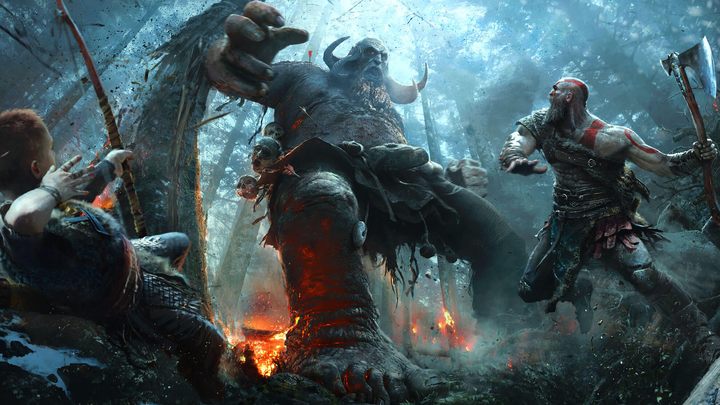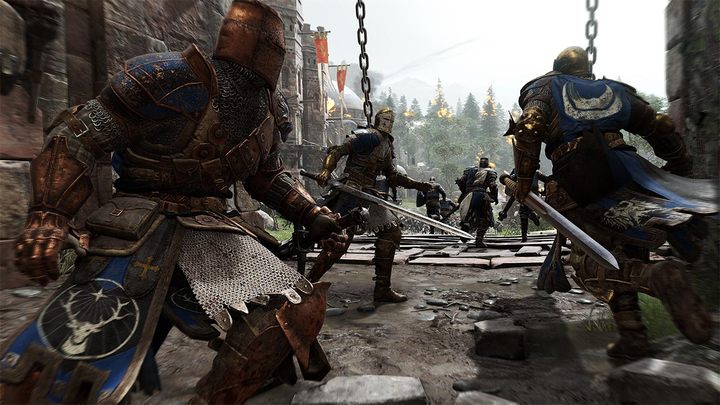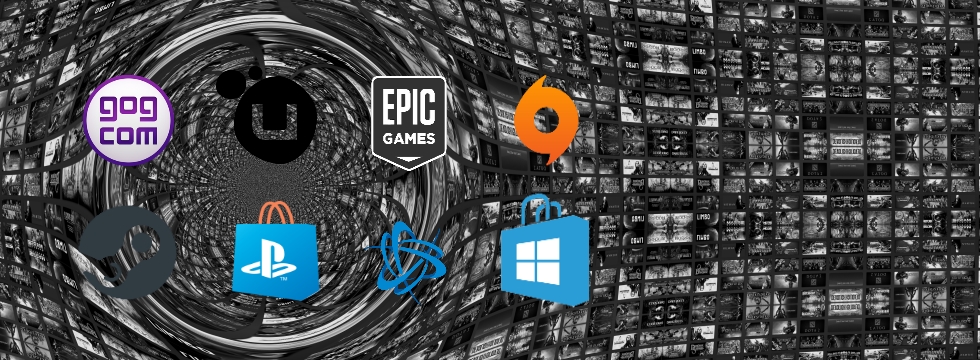author: Michał Wysocki
Analysis: What End-User Agreements Say About Ownership
Digital distribution of games seemingly benefited everyone from developers, who could reach broader audience more easily, through players, who could instantly access hundreds of games, to the environment, liberated from some more plastic. Seemingly.
We all know it. Every time you want to start using a digital service, you must accept some sort of an agreement with the provider, most likely without reading a single word of it. These documents are sometimes called the end-user license agreement (EULA), other times, terms of sale – what they’re called isn’t really important. What matters is that all companies that distribute games via the Internet, as well as the end user, have to conform to these regulations.
By registering a user account on any of the platforms described below, we must accept the terms and conditions presented to us. They define our rights and obligations, which – apart from cases, where national law clearly takes precedence – may be formulated arbitrarily by the parties of the agreement – in this case, the user and the provider.
This article will be a brief analysis of the regulations of various companies selling games over the Internet (who, as it will soon become apparent, are not selling them at all). We shall discuss here the question pivotal to the entire problem – what do we actually acquire after transferring money to a digital-distribution company? This analysis concerns mainly the digital content, with physical copies being discussed only in specific cases.
Steam

IN A NUTSHELL
- What we buy? A license
- Can we share or resell the game? No (unless inside the Steam Family Sharing program that allows you to share your library of games with family or friends)
- Can we backup the game on an external device? No
Steam is not only the world's largest digital distribution platform but also one of the most controversial. A few years ago, Valve drastically moved the goalposts, especially with regard to the provisions specifying what users actually acquire. Before the changes, we simply paid for games. Currently, things are different altogether.
In accordance with the current User Agreement of Steam, the platform provides access to the information stored on it as part of a paid subscription, thus enabling us to use (rather than giving ownership of) the games, applications, and various other services. The frequent comparison of the new set of rules to those of a rental service is definitely close to the truth. Paying for the game, we do not acquire ownership of its copy.
The consequences are easy to predict. We cannot share the purchased production with anyone, and in case of expiration of the agreement, cancellation of the subscription or, for example, deletion of the account, we permanently lose access to our library. Things will be similar if Steam ever ceases to exist.
In addition, Valve included a clause in the rules that makes it illegal to create backups of purchased games. Access to the games is exclusively possible via the Steam client, which also implies the obligation to use the platform for non-commercial purposes only.
GOG.com

IN A NUTSHELL
- What we buy? A license with extensive freedoms
- Can we share or resell the game? No
- Can we backup the game on an external device? Yes
GOG’s user agreement grants you a license (which isn't particularly surprising) to use its services, including the ability to download and install games. However, the service gives its users such extensive freedom that, apart from a few exceptions, leasing games there is indistinguishable from a purchase of a physical copy as understood before the age of digital distribution.
Clause 3.3 of the agreement clearly states that we cannot exchange, sell, transfer or gift GOG content to another person unless the provisions of the EULA explicitly allow it. The company refers to the additional rules, listed in the FAQ. There, you can read that GOG allows installation of the purchased games on all computers within a household. It's forbidden, however, to share the games with third parties.
The quoted provisions clearly state that, although games sold through GOG do not have a DRM protection, we do not have the right to freely administer them. We may install them (without restrictions) only on our own machines and for personal use. Sharing them with third-parties, including friends, is also a no-go. Here, however, we should consider point 11.1(b) of the agreement, which indicates that the distribution of content provided by GOG may be permitted by the user agreement of the particular game – in accordance with the rules specified therein.
GOG allows you to download a backup copy of the game, and the agreement says nothing about transferring it to external devices. Thus, it seems that burning a copy of the game to a disk, printing a cover for it, and placing a box on your shelf won't go against the law, even if GOG ceases to exist. However, the user still won't be able to legally share that game with anyone.
Epic Games Store

IN A NUTSHELL
- What we buy? A license
- Can we share or resell the game? No
- Can we backup the game on an external device? No
The sounds of the battle for the souls of PC players fought between Valve and Epic are still resounding all over the world. Although both sides pull no punches, there seems to be a consensus in one respect, sadly – neither company seems to be interested in simply selling the games.
Epic Games, therefore, continues the unfortunate policy characteristic of Steam. The rules of the Epic Games Store clearly state that the user acquires only a license to use the games (governed by a set of precisely defined rights), rather than ownership.
Particularly interesting are the provisions stating that we cannot install the games on more than one device at the same time, and cannot backup nor transfer them (either by selling, leasing or gifting). Epic also reserves the right to block any content it shares with us without any liability.
The termination of the Epic Games services, no matter if initiated by the player or the owner of the platform, translates into the cancellation of all purchased licenses and the need to delete all copies of the software installed by the user.
PlayStation Store

IN A NUTSHELL
- What we buy? A license
- Can we share or resell the game? No
- Can we backup the game on an external device? No
For the longest time, Sony was perceived as a company that listened to the players and tried to meet their expectations. Those interested in the industry may remember that when Microsoft wanted to make it harder to sell used Xbox One games, the Japanese company gained a good rep for taking an altogether different stand on the issue. However, it was rather a beguiling PR move than an instance of genuine care for the customer – shortly before the release of PlayStation 4, Sony followed suit with their USA counterparts, and also doubled down on second-hand game trade, and that decision shaped their current regulations.
The plural here is significant. Sony regulates this matter primarily in two documents – the PlayStation Network Terms of Service and the Software Usage Terms. Both of these regulations are ambiguous at their most basic level – on the one hand, they use the term "purchase of items," on the other – they spell out the rules for the acquisition of licenses, not copies of games.
4.1. When you purchase Software, you are granted a license to use that Software as described in these Terms, but you do not acquire ownership of the Software. If you do not comply with these Terms, we can terminate the Software license granted to you under these Terms, which means you will no longer have the right to use the Software.
6.1. Your license to use Software is a non-exclusive, non-transferrable, personal license to use the Software for private use only (...).
Software Usage Terms
PSN Terms of service clearly state that we are paying for a license to use the game and that the details of this license are drawn up by Sony. Deleting or blocking our account may, although doesn't have to, mean losing access to purchased (leased) products. As with many of the platforms described herein, we are prohibited from copying or distributing purchased games in any way.
Any doubts concerning what we can do with the purchased products (these rules apply to both physical and digital versions) are solved by the Software Usage Terms. Sony prohibits any exchange or resale of games to third parties unless we can obtain permission in writing from the Japanese corporation or any other entity that holds the rights to the product in question.
LICENSES vs. REALITY
PlayStation 4 games are still subject of vibrant trade around the world, despite the procedure being clearly forbidden in the EULA. Sony even clearly stated in 2013 that, despite the regulations, customers will be able to sell and borrow games.
Origin

IN A NUTSHELL
- What we buy? A license
- Can we share or resell the game? The information on this subject is ambiguous
- Can we backup the game on an external device? No
Electronic Arts, hated by a substantial group of players, along with its Origin platform, does not deviate significantly from the naughty industry standards. It takes about a minute of reading Origin’s terms and regulations to learn that when you pay for a game, you purchase a license to use it, with restrictions on its reselling or copying. Interestingly, EA states further on that it does not guarantee the availability of the games in the future. While paragraph 8 of the agreement ensures a 30-day notice period before any EA services are blocked, but there are other loopholes that allow barring you from your games in a much shorter time. Hence, it's theoretically possible that you could lose access to the purchased game after a week, for reasons difficult to foresee.
The products purchased on Origin can only be installed on the user's own devices (no more than 5 per day). Although it is clearly stated at the beginning of the document that we are not allowed to resell purchased EA products, other clauses found in the Terms of Sale of software and digital content contradict this. First, at the beginning of that document, we read about the "purchase of software products." Second, paragraph 7 provides that – if EA expressly approves this in writing – "certain EA Content" (and therefore games) may be subject to, among other things, resale.
The following sentence, however, states that without EA's explicit written permission, "EA Content purchased from EA may only be gifted, traded, and/or transferred to residents of the same country as the purchaser." Does this mean that by purchasing an EA game, we can only resell it within our own country without EA's written permission? Not necessarily; I myself can come up with at least four credible interpretations of this clause. In case of a dispute on this ground, the lawyers will sure have a lot of fun in decoding these two sentences.
Uplay

IN A NUTSHELL
- What we buy? A license
- Can we share or resell the game? No
- Can we backup the game on an external device? The information on this subject is ambiguous
The rules regulating the purchase of Ubisoft products are established within three documents: the Ubisoft terms of service, the End User License Agreement (EULA) and the Terms of Sale. The latter is the least interesting for us today, as it sets out the rules of purchase of a subscription or virtual currency related to the so-called additional content, such as maps, avatars, or enhancements that make the game easier.
The first document defines the general rules of using Ubisoft services, specifying, in particular, the rights and obligations of users resulting from setting up an account and its further use. The company, of course, prohibits the commercial use of the provided content, as well as it's resale and transfer to external devices, mobile included. Paragraph 3.1 is ambiguous – according to one interpretation, it allows copying of the acquired content for personal use if it's not done on a large scale. This is partly confirmed by the latter part of this clause, but Ubisoft never gives explicit permission for creating backup copies of purchased games.
The most interesting provisions, however, are found in the EULA. No one should be surprised that Ubisoft doesn't sell the game as such. Once again, it is emphasized that, without special permission, we can't copy the purchased products. The provider of the services also reserves the ability to use DRM to verify that users obey the provisions of the EULA.
Interesting fact – Ubisoft is one of the few companies on the market that gives a direct, 90-days warranty on the media containing the game (CD, DVD, cartridge).
Blizzard and Battle.net

IN A NUTSHELL
- What we buy? A license
- Can we share or resell the game? We can share the game in an Internet café, but we can't resell it
- Can we backup the game on an external device? The information on this subject is ambiguous
Blizzard's End-User License Agreement is interesting in a few aspects, though the way it was structured (endless enumerations) is what Ambassador Udina would call "an outrage." Like most other services, this one also sells a license to use games that we can only use for personal, non-commercial purposes. We are prohibited from reselling (or otherwise transferring) purchased products, but on the other hand, they can be installed on any number of devices.
Blizzard also specifies within its rules the games that can be purchased through its platform but don't require the client to work. In these cases, the rights and obligations are governed by separate agreements, concluded between the player and the respective license holders. It is difficult to say if anyone else will be affected, but paragraph 1 seemingly allows (under certain conditions) the use of games in publicly available Internet cafés; when it comes to more contemporary issues, you cannot copy the games, unless explicitly authorized by Blizzard.
In addition to the already mentioned possibility of installing games on different devices, the agreement allows making one copy of the so-called additional software for archival purposes. The definition spelled out in paragraph 3 is opaque, to say the least, but we can assume that we're talking about a backup of the game files needed to be installed on your computer in order to run the game.
Microsoft Store

IN A NUTSHELL
- What we buy? A license
- Can we share or resell the game? The information on this subject is ambiguous
- Can we backup the game on an external device? The information on this subject is ambiguous
When preparing to write this article, I initially wanted to praise Microsoft for the transparency of their agreements. I had to change my mind, though, after the Terms of Sale sent me to a series of rules in the Microsoft Service Agreement. There, however, I couldn’t find what I was looking for, and was further redirected to the Usage rules for Digital Goods.
I do not undertake to analyze these provisions, because they are not only unclear; it is still difficult to assess which of these rules apply to games in the Windows OS, which to physical copies Xbox games, and which to digital content exclusively. What is certain is that – like other platforms – the Microsoft Store sells a license that can only be used for personal, non-commercial purposes.
Summary
The conclusions that can be drawn from the above analysis are self-evident – the most favorable conditions for customers are provided by GOG.com, which allows the purchase of the game and its use even after the platform ceases to operate. All other providers, while not avoiding terms such as "sell", "buy" and "pay for the game," merely provide licenses or subscriptions for the use of their products, which will be nullified should the corresponding account be deactivated. Microsoft, in turn, has created a multi-level regulatory maze that even someone experienced in legal verbiage will have a hard time deciphering.
Remember that this article is but a brief overlook of the provisions of individual agreements rather than legal advice. The existence of rules and jurisprudence in force in the EU and other states allow assuming that not all of the provisions of these user agreements would be able to withstand the scrutiny of the court. First of all, the clauses that alleviate responsibility from the service providers for the correct operation of purchased games, licenses, and subscriptions, are questionable, to say the least. Furthermore, the prohibition of resale of games (especially those purchased in the physical version), and the inability to reclaim currency from virtual wallets upon the deactivation of the account, also seems to be based on dubious presumptions.
However, in order to prove the illegitimacy of these provisions, it would be necessary to file a lawsuit against these companies, which would require a substantial financial effort. It is reasonable to assume, too, that in such a case, Valve, Microsoft or EA would throw all their legal force against the plaintiffs in order to prevent a legal precedent that could shape (shake?) the market in the future.
ABOUT THE AUTHOR
Michal Wysocki is a lawyer working for the Attorneys at Law and Legal Advisors’ Office "Wyrwa & Associates"
